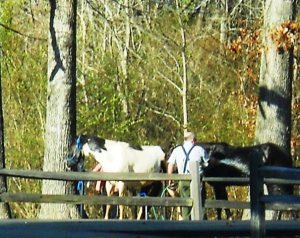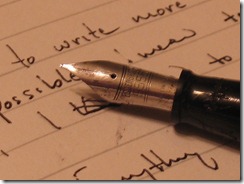
In 1946, George Orwell wrote an essay answering the question: “Why I Write” . Many writers — Virginia Woolf, Earnest Hemingway, Flannery O’Connor, and others — have also responded to this same question in their letters, memoirs, and nonfiction prose. Or in their own “Why I Write” essays like Orwell’s (Joan Didion, Terry Tempest Williams) and in the anthology Why I Write: Thoughts on the Craft of Fiction where twenty-six fiction writers answer that question, including Normal Mailer, Joy Williams, Richard Ford, Amy Hempel, James Salter, Thom Jones, Rick Bass, Ann Patchett, Lee Smith and Mary Gaitskill.
Reading writers responses to this prompt has led to my own exploration. It’s not that I haven’t often thought of why I write. But I that I believe it needs revisiting. Many of the reasons these writers to explain why they write are the same reasons why I write. Yet, I know that this question deserves my own response. I believe responding to the “Why I Write” question on our own will lead us closer toward the writing we want to do. The work that only we can do. What draws us to the stories we write? What draws us to the forms that we write in? Why are at our desks writing when there are a million other things to do?
George Orwell begins with this response to “Why I Write” :
From a very early age, perhaps the age of five or six, I knew that when I grew up I should be a writer. Between the ages of about seventeen and twenty-four I tried to abandon this idea, but I did so with the consciousness that I was outraging my true nature and that sooner or later I should have to settle down and write books (Orwell, “Why I Write,” 1946)
For Ray Bradbury, writing is tonic:
“Not to write for many of us, is to die.,..I have learned on my own journeys, that if I let a day go by without writing I grow uneasy. Two days and I am in tremor. Three and I suspect lunacy. Four and I might as well be a hog, suffering flux in a wallow. An hour’s writing is tonic” (Ray Bradbury, Zen in the Art of Writing, p. xiii)

I write to have a voice. To cure what ails me. When I was sixteen, my step-father found several stories I had written and hid in my bedroom closet, and he immediately threw them into a metal trash can in the backyard, poured lighter fuel on top of the pages, and lit a match. He said making up stories was lying and God wouldn’t want me to write lies. Then he grounded me. Or he tried. Writing was the tonic that soothed the pain of seeing my words turn to ash. I write because I need more words to break the silence. Because I will not be silenced.
Barry Hannah said this about his experience at the age of nineteen taking a creative writing class at Mississippi College:
“Frankly, I got such respect from the professor—and I know my stories were not that good— that I started loving it. I had been going through a kind of religious conversion to lit from premed, so it was a liberating, huge feeling. Literature had that great unknown quality because you gave yourself to it without any promises. It was very existential. I liked that. Just risking your whole self for something there’s no guarantee for. The risk is its own end.” (Paris Review Interview 2004, Barry Hannah, The Art of Fiction No. 184)
I write because I need to understand what happened. Why were things the way they were? Why are things the way they are? I write to discover the words that will say what it is I must say. If I don’t write it down on the page, I’ll write it down in my dreams. I will toss and turn and never sleep. I write to hunt it down during the waking hours because I take Flannery O’Connor’s words to heart: “If you don’t hunt it down and kill it, it will hunt you down and kill you.”
“Dreams may be temporary flights into madness that, by some law of neurophysiology unclear to us, keep us from actual madness. So, too, … writing keep the writer reasonably sane and with the hope, however illusory and temporary, of control.” Joyce Carol Oates, “To Invigorate Literary Mind, Start Moving Literary Feet,” 1989).
Naturalist Writer, Terry Tempest Williams:
“I write to discover. I write to uncover. I write to meet my ghosts. I write to begin a dialogue . . . I write as an exercise in pure joy. I write as one who walks on the surface of a frozen river beginning to melt. I write out of my anger and into my passion. I write from the stillness of night anticipating-always anticipating. I write to listen. I write out of silence. I write to soothe the voices shouting inside me, outside me, all around. I write because of the humor of our condition as humans. I write because I believe in words. I write because I do not believe in words. I write because it is a dance with paradox” (Williams, “Why I Write”).
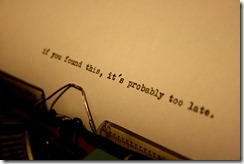
I write to “ease the passing of time” — Jorge Luis Borges’ answer to “Why I Write”. I am aware of my own mortality. I want to “give it, give it all, give it now” (Annie Dillard, “Write Until You Drop”, 1989) . Language is the only way I know to do this even when words seem inaccurate. I feel the need to push harder. To find those words. To not flinch. To not look away. I want to know that I have been here. The words and sentences anchor me and keep me from slipping away. Words keep me coming back to the page to try to make sense of it all. I keep struggling to ‘describe it, to discuss it, to disclose it,’.
Poet Lynn Hejinian on disclosure:
“Because we have language we find ourselves in a special and peculiar relationship to the objects, events and situations which constitute what we imagine of the world. Language generates its own characteristics in the human psychological and spiritual conditions. Indeed, it is near our psychological condition. This psychology is generated by the struggle between language and that which it claims to depict or express, by our overwhelming experience of the vastness and uncertainty of the world, and by what often seems to be the inadequacy of the imagination that longs to know it – and, furthermore, for the poet, the even greater inadequacy of the language that appears to describe, discuss, or disclose it.”
I write because I must. I write because when I do I find the answers to my questions. I don’t want to wait on the knock on the door from the capricious guest (name for inspiration attributed to composer, Peter Byich Tchaikovsky) . I write to hear the voices, to have them beckon me to continue, to listen, to pay attention, to record the words they speak.
Describing her work on a novel, Joan Didion, in her essay, “Why I Write” (1975) answers the question:
This “I” was the voice of no author in my house. This “I” was someone who not only knew why Charlotte went to the airport but also knew someone called “Victor.” Who was Victor? Who was this narrator? Why was this narrator telling me this story? Let me tell you one thing about why writers write: had I known the answer to any of these questions I would never have needed to write a novel “
Hemingway said “I have to write to be happy” (To Charles Scribner, 1940 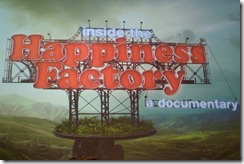 Selected Letters, pp. 503-504). I know this to be true. I write because it makes me happy. It made me happy at the age of eight to pick up a pen and start scribbling in a diary. It made me happy at the age of sixteen to write my first short stories. It made me happy to write when I was studying creative writing in college. It made me happy to write anytime I could find time to write when I was working full time and finding time to write was so difficult. It made me happy at the age of forty-five to quit my full-time job and return to my writing with a force to be reckoned with and write the first draft of a novel.
Selected Letters, pp. 503-504). I know this to be true. I write because it makes me happy. It made me happy at the age of eight to pick up a pen and start scribbling in a diary. It made me happy at the age of sixteen to write my first short stories. It made me happy to write when I was studying creative writing in college. It made me happy to write anytime I could find time to write when I was working full time and finding time to write was so difficult. It made me happy at the age of forty-five to quit my full-time job and return to my writing with a force to be reckoned with and write the first draft of a novel.
It made me happy to get up today and write what I write. Because now I know, despite the difficulty, I write because I must to be happy. I write because like Flannery O’Connor said: “Not-writing is a good deal worse than writing” (Habits Of Being: Letters). I write so that it does not dry up and blow away.
“I’m a full-time believer in writing habits, pedestrian as it all may sound. You may be able to do without them if you have genius but most of us only have talent and this is simply something that has to be assisted all the time by physical and mental habits or it dries up and blows away.” ~Flannery O’Connor
Annie Dillard in her essay, “Write Until You Drop,” reminds us of the urgency of passage of time, too:
“After Michelangelo died, someone found in his studio a piece of paper on which he had written a note to his apprentice, in the handwriting of his old age: ”Draw, Antonio, draw, Antonio, draw and do not waste time.”
I write because I hear a voice whispering, and when I’m not listening, yelling as loud as it can: “Write, write, write and do not waste time.” Because as Joyce Carol Oates said: “I’ve never given up. I’ve always kept going. I don’t feel that I could afford to give up.” (Paris Review Interview 1978, Joyce Carol Oates, The Art of Fiction No. 72)
I write because why not write. I cannot afford to give up, or I will silence that my sixteen year old girl’s voice who speaks to me now and tells me she needs more words. I write to get rid of the taste of ash.
More on “Why I Write”
The Art of Fiction – The Paris Review Interviews – a series of interviews with writers including Earnest Hemingway, Joyce Carol Oates, John Updike, Stephen King, Alice Munro, Jorge Luis Borges, Marilynne Robinson, Henry Miller, Eudora Welty, Chinua Achebe, Barry Hannah, and more.
Why and How to Write – a three-part series of various writers responding to the question of why and how to write, including Flannery O’Connor, Vladimir Nabokov, Joyce Carol Oates, Anton Chekhov, James Baldwin, Toni Morrison, Kurt Vonnegut Jr., Langston Hughes, Margaret Atwood, and more.
New York Times Series: Writers on Writing – a collection of essays published in the New York Times by various writers reflecting on the writing life and sharing their approach to writing.
Charlie Rose Series: Writers on Writing (video) –interviews with Jonathan Franzen, Zadie Smith, Martin Amis, Malcolm Gladwell, Fran Lebowitz and Joan Didion
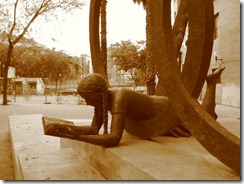
Reading: Writers on Writing
- A Moveable Feast, Earnest Hemingway
- Ernest Hemingway on Writing, Larry W. Phillips (Ed.)
- F. Scott Fitzgerald on Writing, Larry W. Phillips (Ed.)
- Henry Miller On Writing, Henry Miller
- Ernest Hemingway Selected Letters 1917-1961
- A Room of One’s Own (Annotated) by Virginia Woolf
- Moments of Being by Virginia Woolf
- A Writer’s Diary by Virginia Woolf
- On Writing by Stephen King
- On Becoming a Writer by Dorothea Brande
- The Habit of Being: Letters of Flannery O’Connor
- Mystery and Manners: Occasional Prose Flannery O’Connor
- The Art of Fiction, John Gardner
- Wild Mind: Living the Writer’s Life by Natalie Goldberg
- Writing Down the Bones by Natalie Goldberg
- Thunder and Lightening: Cracking Open the Writer’s Craft by Natalie Goldberg
- Bird by Bird: Some Instructions on Writing and Life by Anne Lamott
- Zen in the Art of Writing by Ray Bradbury
- This Year You Write Your Novel by Walter Mosley
- Conversations on Writing Fiction: Interviews by Alex Neubuer
- The Triggering Town Lectures and Essays on Poetry and Writing, by Richard Hugo
- The Writing Life (1989) by Annie Dillard
- Pilgrim at Tinker Creek (1974) by Annie Dillard
- Darkness Visible: A Memoir of Madness, William Styron
- The Art of Fiction: Notes on Craft for Young Writers, John Gardner
- Writing Creative Nonfiction, edited by Carolyn Carolyn Forché and Philip Gerard, Story Press (2001)
- Why I Write: Thoughts on the Craft of Fiction, Will Blythe (editor)


